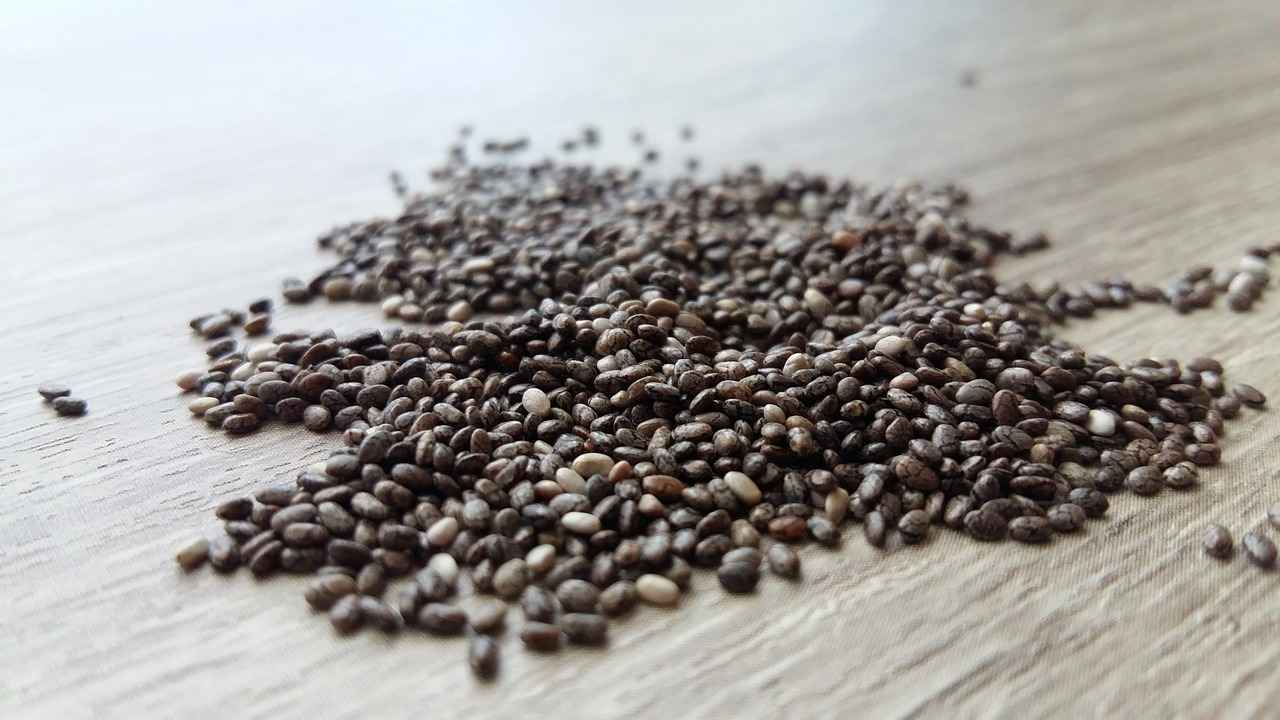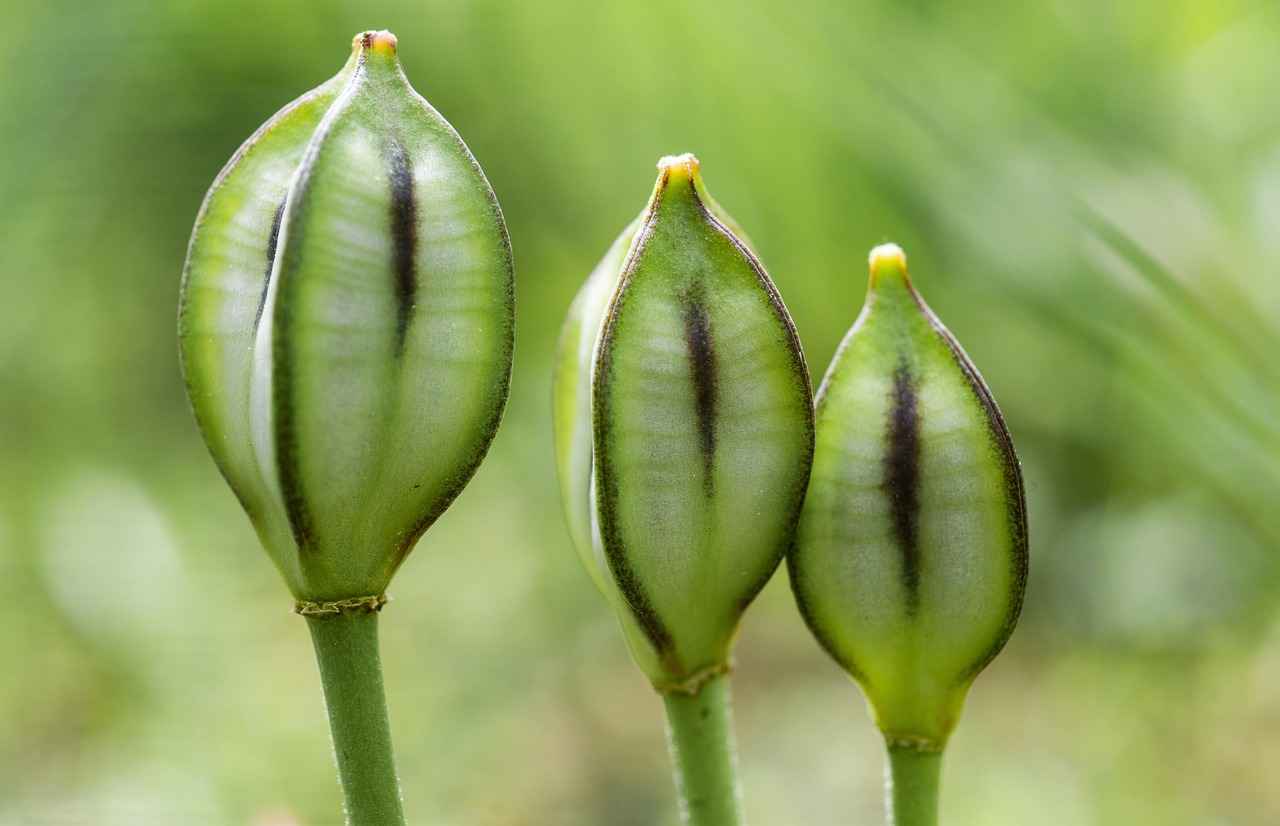Organic chia seeds have gained popularity in recent years, and for good reason. This article delves into the numerous benefits of choosing organic chia seeds over regular varieties, focusing on aspects such as health advantages, environmental impact, and nutritional value. By understanding these factors, consumers can make informed choices that align with their health goals and values.
Organic chia seeds are derived from the Salvia hispanica plant, which is cultivated without the use of synthetic pesticides or fertilizers. This ensures a cleaner and healthier product, not only for the consumers but also for the environment. The organic farming practices used in their cultivation contribute to sustainable agriculture, promoting biodiversity and soil health.
The most significant difference between organic and regular chia seeds lies in their farming practices. Organic chia seeds are grown using sustainable methods that avoid harmful chemicals, while regular chia seeds may be treated with pesticides and fertilizers that can compromise their purity and safety.
Organic chia seeds are exceptionally rich in omega-3 fatty acids, fiber, and antioxidants. These nutrients support heart health, improve digestive wellness, and enhance overall vitality. Incorporating organic chia seeds into your diet can be a simple yet effective way to boost your nutritional intake.
Opting for organic chia seeds supports sustainable farming practices that protect our planet. These practices help reduce pollution, conserve water, and promote soil health, contributing to a healthier environment for future generations.
Research suggests that organic chia seeds may contain higher levels of certain nutrients compared to their non-organic counterparts. This nutrient density means that each serving of organic chia seeds can provide better health benefits, making them a superior choice for health-conscious individuals.
- Add them to smoothies for an extra nutrient boost.
- Mix into oatmeal or yogurt for added texture and health benefits.
- Use them in baked goods, such as muffins or bread, to enhance flavor and nutrition.
Organic farming practices play a critical role in reducing chemical runoff, promoting biodiversity, and improving soil health. By choosing organic chia seeds, consumers can make a more environmentally friendly choice that supports sustainable agriculture.
Due to their high fiber content, organic chia seeds can promote a sense of fullness and help regulate appetite. This makes them a beneficial food for those looking to manage their weight effectively. Incorporating chia seeds into meals can aid in achieving satiety without excessive calorie intake.
Finding reliable sources for organic chia seeds is essential for ensuring quality. Look for certified organic brands at health food stores or trusted online retailers. Always prioritize brands that emphasize quality and transparency in their sourcing and production practices.
While organic chia seeds are generally safe for most individuals, some may experience digestive discomfort if they consume excessive amounts. It is important to practice moderation and ensure proper hydration when incorporating chia seeds into your diet.
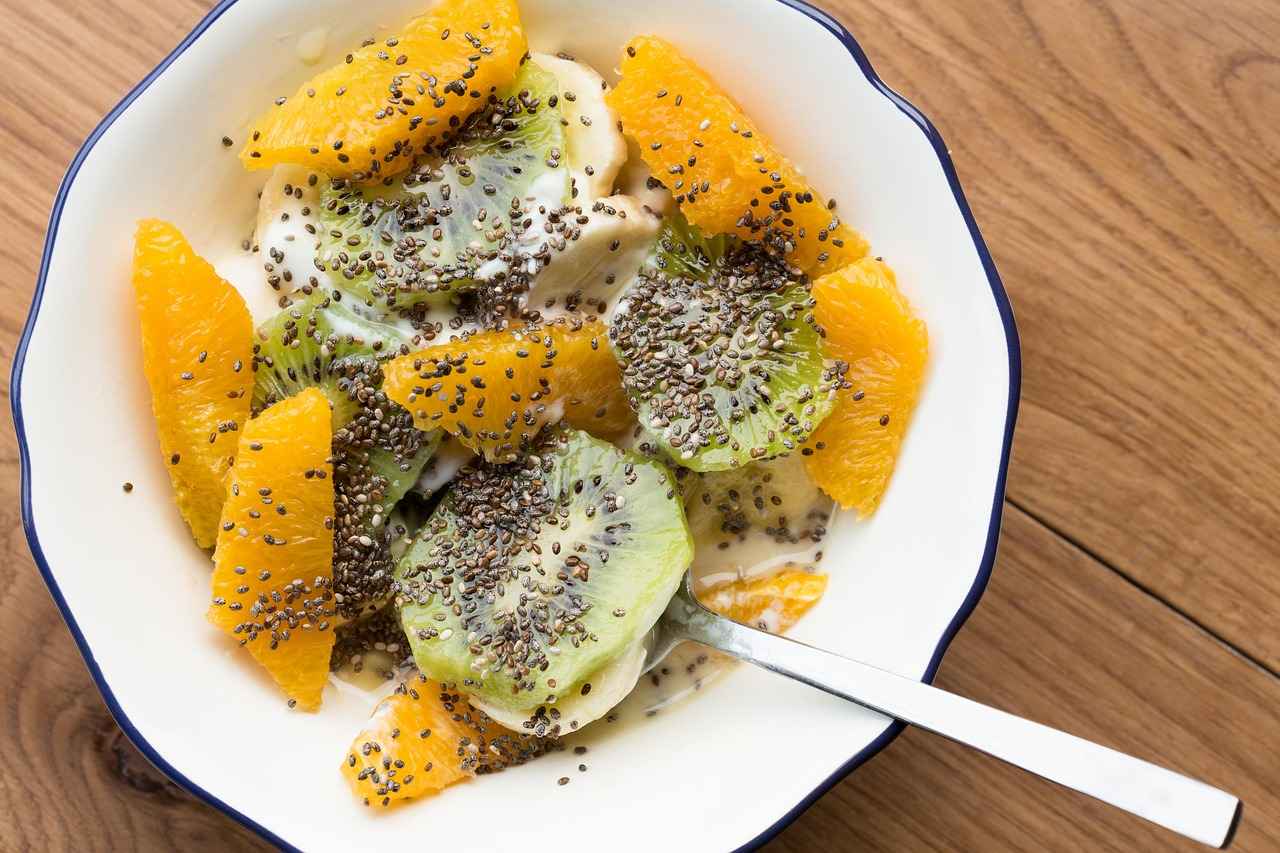
What Are Organic Chia Seeds?
Organic chia seeds are derived from the Salvia hispanica plant, a member of the mint family that is native to Central and South America. These tiny, nutrient-packed seeds have gained significant popularity in recent years, thanks to their numerous health benefits and versatility in various culinary applications. Unlike conventional chia seeds, organic varieties are cultivated using sustainable farming practices that avoid the use of synthetic pesticides and fertilizers, resulting in a cleaner and healthier product for both consumers and the environment.
The cultivation of organic chia seeds adheres to strict guidelines set by organic certification bodies. This means that the seeds are grown in chemical-free environments, promoting a more natural growth process that enhances their nutritional profile. Consumers can rest assured that when they choose organic chia seeds, they are opting for a product that is not only better for their health but also for the planet.
One of the primary reasons to choose organic chia seeds is their nutritional density. These seeds are a powerhouse of essential nutrients, including omega-3 fatty acids, fiber, protein, and antioxidants. Omega-3 fatty acids are known for their heart health benefits, while the high fiber content aids in digestion and promotes a feeling of fullness. This makes organic chia seeds an excellent addition to a balanced diet, especially for those looking to enhance their overall wellness.
Furthermore, organic chia seeds are typically richer in certain nutrients compared to their non-organic counterparts. Studies suggest that organic seeds may exhibit higher levels of antioxidants and beneficial phytochemicals, which can contribute to improved health outcomes. This nutrient density is particularly appealing for health-conscious individuals seeking to maximize their dietary benefits.
Another significant aspect of organic chia seeds is their role in supporting sustainable agriculture. By choosing organic, consumers are actively contributing to farming practices that prioritize biodiversity, soil health, and reduced pollution. Organic farming methods help protect ecosystems and promote a healthier environment, making it a responsible choice for those who are environmentally conscious.
Incorporating organic chia seeds into your diet is easy and versatile. They can be added to a variety of dishes, including smoothies, oatmeal, salads, and baked goods. Their ability to absorb liquid and form a gel-like consistency makes them an excellent thickening agent for recipes, enhancing both texture and nutritional value. Additionally, chia seeds can be used as a vegan egg substitute in baking, making them a favorite among plant-based eaters.
While organic chia seeds offer numerous benefits, it’s essential to consume them in moderation. Due to their high fiber content, excessive intake may lead to digestive discomfort. It’s advisable to start with small amounts and gradually increase your intake while ensuring adequate hydration to fully enjoy their benefits.
In summary, organic chia seeds are not just a trendy superfood; they represent a conscious choice for health and sustainability. By opting for organic, consumers can enjoy the numerous health benefits while supporting environmentally friendly practices. When purchasing, look for certified organic brands to ensure quality and transparency. With their rich nutrient profile and versatility, organic chia seeds can be a valuable addition to any diet.
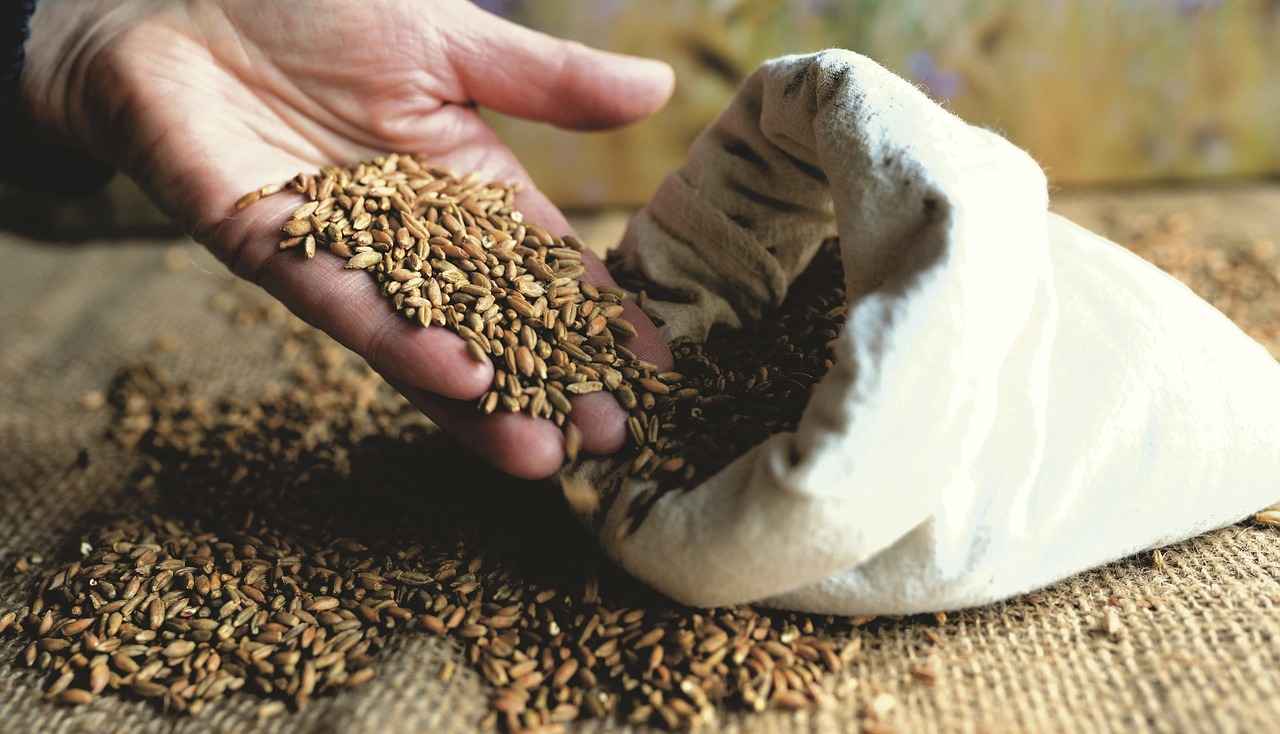
How Do Organic Chia Seeds Differ from Regular Chia Seeds?
Organic chia seeds and regular chia seeds may seem similar at first glance, but their differences are significant, particularly in terms of farming practices and their impact on health and the environment. Understanding these distinctions can help consumers make informed choices about what they eat.
The primary difference lies in the farming practices; organic chia seeds are cultivated using sustainable methods that prioritize environmental health. These seeds are grown without the use of synthetic pesticides, herbicides, or fertilizers, which can be harmful to both the ecosystem and human health. In contrast, regular chia seeds may be treated with these harmful chemicals, potentially affecting their purity and safety.
Organic farming practices not only focus on the seeds themselves but also on the soil health and biodiversity of the farming area. Organic farmers often employ crop rotation, cover cropping, and composting techniques to enhance soil fertility and structure. This approach not only benefits the chia plants but also supports a diverse ecosystem, fostering beneficial microorganisms and insects that contribute to a balanced environment.
Regular chia seeds may contain residues from the chemicals used during their cultivation. These residues can pose health risks, particularly if consumed over long periods. Organic chia seeds, on the other hand, are less likely to carry such contaminants, making them a safer choice for health-conscious consumers.
Research suggests that organic chia seeds may have a higher nutritional profile compared to their non-organic counterparts. They are packed with essential nutrients, including omega-3 fatty acids, fiber, and antioxidants, which contribute to various health benefits. The absence of chemical fertilizers in organic farming allows the seeds to develop more naturally, potentially enhancing their nutrient density.
By choosing organic chia seeds, consumers are also making a choice that benefits the environment. Organic farming methods help reduce chemical runoff that can pollute waterways and harm aquatic life. Additionally, organic practices promote biodiversity, which is crucial for maintaining healthy ecosystems.
When purchasing chia seeds, it is essential to look for certified organic labels. This certification ensures that the seeds have been grown and processed according to strict organic standards. Reputable brands often provide transparency about their farming practices, allowing consumers to make choices aligned with their values.
Organic chia seeds can be easily incorporated into various meals. They can be added to smoothies, oatmeal, or baked goods, enhancing both flavor and nutritional value. Their unique ability to absorb liquid and form a gel makes them an excellent ingredient for puddings and as an egg substitute in vegan recipes.
When considering the differences between organic and regular chia seeds, it is clear that the benefits of choosing organic extend beyond personal health. By opting for organic chia seeds, consumers are supporting sustainable farming practices that protect the environment and promote biodiversity. Ultimately, the choice between organic and regular chia seeds is not just about nutrition; it is about making a conscious decision that aligns with a healthier lifestyle and a healthier planet.

What Are the Health Benefits of Organic Chia Seeds?
Organic chia seeds have gained popularity in recent years, thanks to their numerous health benefits and nutritional profile. These tiny seeds, derived from the Salvia hispanica plant, are packed with essential nutrients that can significantly enhance your overall well-being. In this section, we will delve into the various health benefits of organic chia seeds, emphasizing why they should be a staple in your diet.
One of the standout features of organic chia seeds is their high content of omega-3 fatty acids. These essential fats are crucial for maintaining heart health, as they help reduce inflammation and lower blood pressure. Incorporating organic chia seeds into your daily routine can support cardiovascular health and reduce the risk of heart disease.
Organic chia seeds are an excellent source of dietary fiber, containing about 11 grams of fiber per ounce. This high fiber content aids in digestion, promotes regular bowel movements, and helps maintain a healthy gut. Additionally, fiber is known to promote feelings of fullness, which can assist in weight management by curbing overeating.
These tiny seeds are also rich in antioxidants, which help combat oxidative stress in the body. Antioxidants play a crucial role in neutralizing harmful free radicals, potentially reducing the risk of chronic diseases such as cancer and diabetes. By including organic chia seeds in your diet, you can enhance your body’s defense against cellular damage.
Organic chia seeds are a great source of essential minerals like calcium, phosphorus, and magnesium, all of which are vital for maintaining strong bones. The high calcium content, in particular, makes chia seeds an excellent option for those who are lactose intolerant or seeking plant-based sources of calcium.
Chia seeds are known to provide a natural energy boost due to their unique combination of protein, healthy fats, and carbohydrates. This balanced profile helps stabilize blood sugar levels, preventing energy crashes and promoting sustained energy throughout the day. Additionally, the protein content supports muscle repair and growth, making chia seeds an ideal post-workout snack.
When soaked in water, organic chia seeds can absorb up to 12 times their weight, forming a gel-like substance. This property not only aids in hydration but also helps to slow down digestion, providing a steady release of energy. Consuming chia seeds can be particularly beneficial during hot weather or after intense exercise, as they help maintain hydration levels.
- Smoothies: Add a tablespoon of chia seeds to your favorite smoothie for an extra nutritional boost.
- Oatmeal: Mix chia seeds into your morning oatmeal for added texture and nutrients.
- Baked Goods: Incorporate chia seeds into muffins, breads, or pancakes to enhance their health benefits.
- Chia Pudding: Combine chia seeds with almond milk and let sit overnight for a delicious and nutritious pudding.
In summary, organic chia seeds are a powerhouse of nutrition, offering a wide range of health benefits that can enhance your overall vitality. From heart health to digestive wellness, these tiny seeds pack a punch that can make a significant difference in your diet. By choosing organic chia seeds, you not only nourish your body but also support sustainable farming practices that benefit the environment.
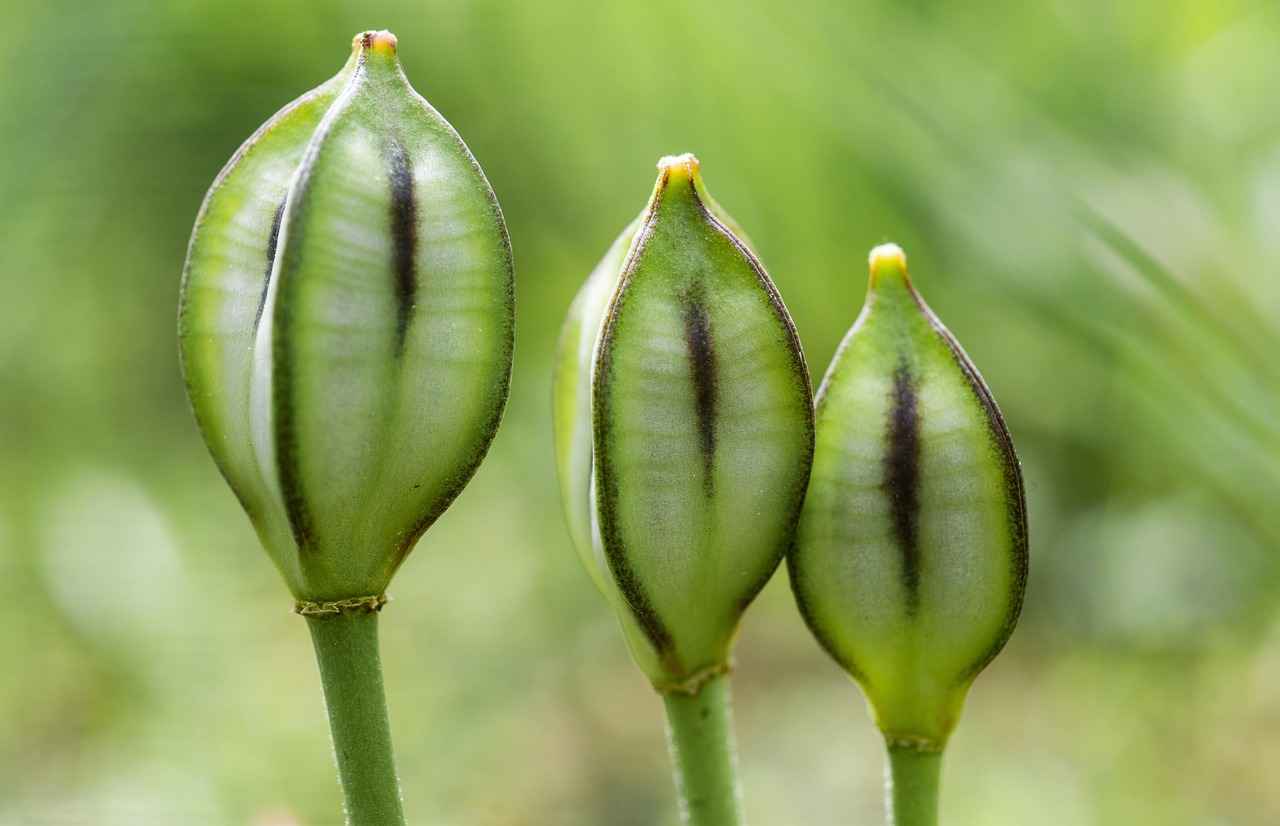
Why Choose Organic Chia Seeds for Sustainability?
When it comes to making conscious food choices, selecting organic chia seeds is a significant step towards supporting sustainable agriculture. Organic chia seeds not only provide numerous health benefits but also play a vital role in promoting environmental sustainability. In this section, we will explore the reasons why choosing organic chia seeds is essential for both personal health and the planet.
Organic chia seeds are cultivated without the use of synthetic pesticides, fertilizers, or genetically modified organisms (GMOs). This commitment to sustainable farming practices ensures that the soil remains healthy and nutrient-rich, which is crucial for maintaining biodiversity. By opting for organic chia seeds, consumers are supporting farming methods that prioritize ecological balance and the well-being of the planet.
One of the most compelling reasons to choose organic chia seeds is their role in protecting biodiversity. Organic farms often encourage a diverse range of plants and animals to thrive, creating a balanced ecosystem. This diversity helps to prevent the spread of pests and diseases, reducing the need for chemical interventions. By nurturing various species, organic farming contributes to a more resilient agricultural system.
Conventional farming techniques can lead to significant pollution through chemical runoff, which contaminates waterways and harms aquatic life. Organic farming methods, on the other hand, utilize natural fertilizers and pest control strategies, minimizing environmental impact. By choosing organic chia seeds, consumers are actively participating in reducing pollution levels and promoting cleaner water sources.
Healthy soil is the backbone of sustainable agriculture. Organic farming practices enhance soil structure and fertility, making it more resilient to erosion and climate change. The use of cover crops and crop rotations in organic farming helps to replenish soil nutrients and prevent depletion. By supporting organic chia seed production, consumers are investing in the long-term health of our planet’s soil, ensuring that future generations can also benefit from its resources.
Organic farming practices can also play a role in mitigating climate change. By sequestering carbon in the soil and reducing greenhouse gas emissions associated with synthetic fertilizers, organic agriculture contributes to a lower carbon footprint. Choosing organic chia seeds is not just a personal health decision; it is also a choice that supports a more sustainable and climate-resilient food system.
Many organic chia seeds are sourced from small-scale farmers who practice sustainable agriculture. By purchasing organic products, consumers are helping to support local economies and empower farming communities. This economic support fosters a sense of community and encourages more farmers to adopt organic practices, further enhancing the sustainability of the food supply chain.
In summary, choosing organic chia seeds is a powerful way to support sustainable farming practices that protect biodiversity, reduce pollution, and promote soil health. By making this conscious choice, consumers contribute to a healthier planet for future generations. Embracing organic agriculture is not just about personal health; it is about fostering a sustainable future for the environment and the communities that depend on it.

Are Organic Chia Seeds More Nutrient-Dense?
When it comes to choosing healthy foods, many consumers are increasingly turning to organic options. One such superfood that has gained popularity is chia seeds. But the question arises: Research suggests that organic chia seeds may indeed contain higher levels of certain nutrients compared to their non-organic counterparts, providing better health benefits with each serving.
Organic chia seeds are a powerhouse of nutrition. They are rich in:
- Omega-3 Fatty Acids: Essential for heart health, organic chia seeds contain alpha-linolenic acid (ALA), which can help reduce inflammation and lower cholesterol levels.
- Fiber: With a significant amount of dietary fiber, chia seeds promote digestive health and help maintain a feeling of fullness, which can aid in weight management.
- Antioxidants: These compounds help protect the body from oxidative stress and may lower the risk of chronic diseases.
- Minerals: Organic chia seeds are a good source of calcium, magnesium, and iron, which are essential for bone health and overall metabolic function.
The difference in nutrient density between organic and non-organic chia seeds can often be attributed to the farming practices used. Organic chia seeds are grown without synthetic fertilizers and pesticides, which can lead to healthier soil and, in turn, healthier plants. This natural approach often results in seeds that are richer in nutrients and free from harmful chemical residues.
Several studies indicate that organic chia seeds may have higher levels of beneficial nutrients. For instance, a study published in a reputable journal found that organic chia seeds contained up to 30% more antioxidants than their conventionally grown counterparts. This increase can significantly enhance the health benefits associated with regular consumption.
Choosing organic chia seeds can lead to improved health outcomes. The higher levels of omega-3 fatty acids can support cardiovascular health, while increased fiber content aids in digestion. Moreover, the antioxidant properties help combat free radicals, potentially lowering the risk of diseases such as cancer and heart disease.
To fully enjoy the health benefits of organic chia seeds, consider the following tips:
- Soak Before Consumption: Soaking chia seeds in water or milk can enhance their digestibility and nutrient absorption.
- Incorporate into Meals: Add chia seeds to smoothies, yogurt, or baked goods to boost their nutritional profile.
- Pair with Nutrient-Rich Foods: Combining chia seeds with fruits and vegetables can amplify their health benefits.
While organic chia seeds are generally safe for most people, it’s important to consume them in moderation. Overconsumption can lead to digestive discomfort due to their high fiber content. It’s advisable to start with a small amount and gradually increase intake, ensuring adequate hydration.
In conclusion, the evidence suggests that organic chia seeds are indeed more nutrient-dense than their non-organic counterparts. By choosing organic, you not only support sustainable farming practices but also enhance your health with every serving. Whether you’re looking to improve your heart health, boost your antioxidant intake, or simply add a nutritious element to your meals, organic chia seeds are a fantastic choice.
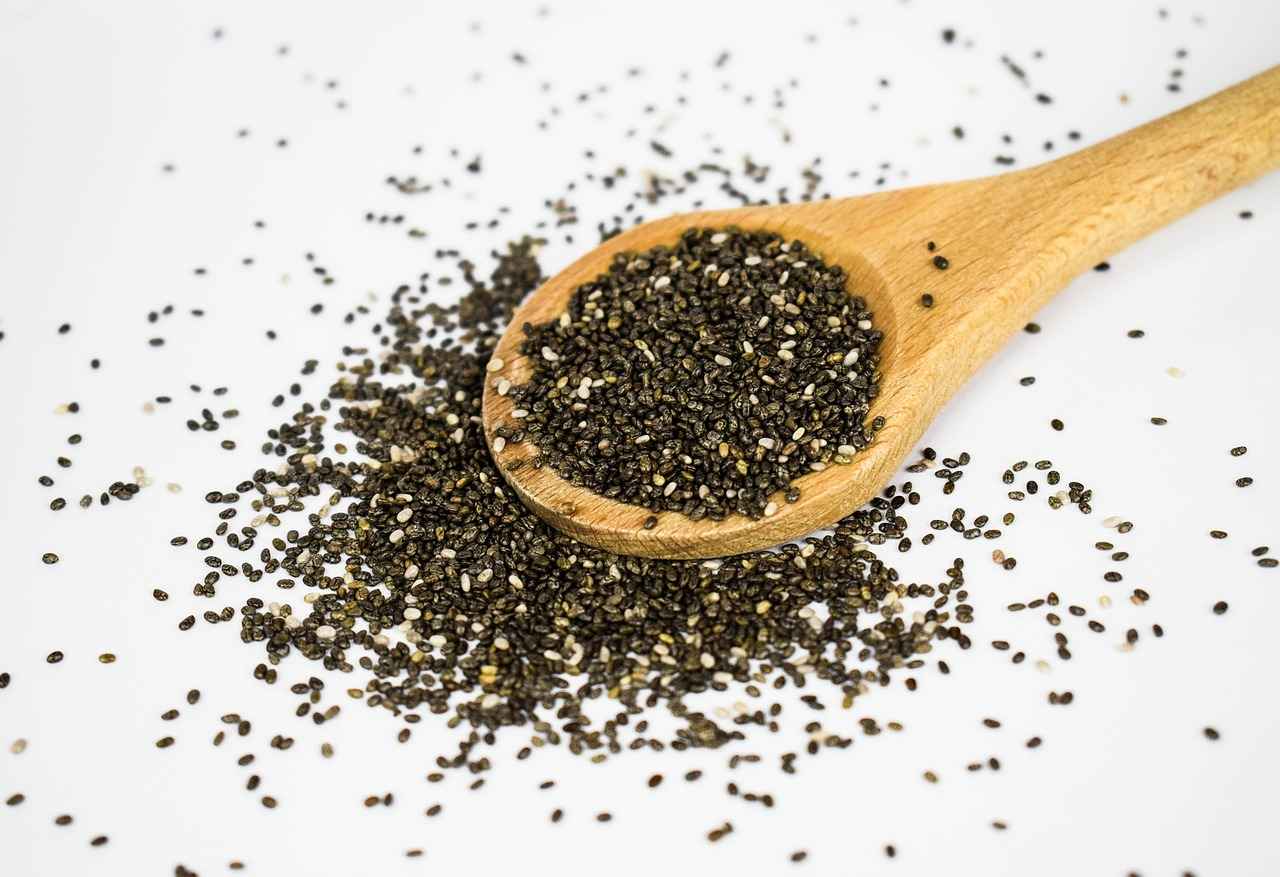
How to Incorporate Organic Chia Seeds into Your Diet?
Incorporating organic chia seeds into your daily diet can be both enjoyable and beneficial for your health. These tiny seeds are packed with nutrients and can easily enhance your meals. Here are some creative and practical ways to add them to your diet:
- Smoothies: One of the simplest ways to enjoy chia seeds is by adding them to your smoothies. They blend well with fruits and vegetables, providing an extra boost of omega-3 fatty acids and fiber. Just add a tablespoon of chia seeds to your favorite smoothie recipe for a nutritious upgrade.
- Overnight Oats: Chia seeds can transform your overnight oats into a nutrient-dense meal. Mix rolled oats with milk or a milk alternative, add chia seeds, and let it sit overnight. In the morning, top it with fruits and nuts for added flavor and texture.
- Baked Goods: Incorporate chia seeds into your baking recipes. Whether it’s muffins, bread, or pancakes, adding chia seeds can enhance the nutritional profile without altering the taste. Replace some of the flour with ground chia seeds to increase fiber content.
- Salads: Sprinkle chia seeds over salads for a delightful crunch. Their mild flavor complements various dressings and ingredients, making them an excellent addition to your greens.
- Chia Pudding: Create a delicious chia pudding by mixing chia seeds with your choice of milk and sweetener. Let the mixture sit for a few hours or overnight until it thickens. You can customize it with flavors like vanilla, cocoa, or fruits.
- Soups and Stews: Chia seeds can be added to soups and stews as a thickening agent. They absorb liquid and swell, adding a pleasant texture while boosting the nutritional value of your dish.
- Energy Bars: Homemade energy bars are a fantastic way to incorporate chia seeds. Combine oats, nuts, dried fruits, and chia seeds for a healthy snack that provides sustained energy throughout the day.
- Yogurt: Mix chia seeds into yogurt for a nutritious snack or breakfast option. Pair it with fruits and granola for a delightful combination of flavors and textures.
When incorporating chia seeds into your diet, it’s important to remember that they absorb a significant amount of liquid. Therefore, ensure you drink plenty of water throughout the day to aid digestion. Start with a small amount and gradually increase to avoid any potential digestive discomfort.
By exploring these various methods, you can enjoy the numerous health benefits of organic chia seeds while enhancing the flavor and nutritional value of your meals. Their versatility makes them a perfect addition to any diet, and with a little creativity, you can find countless ways to include them in your daily routine.

What Are the Environmental Benefits of Organic Farming?
Organic farming represents a sustainable approach to agriculture that prioritizes the health of the planet and its inhabitants. By avoiding synthetic chemicals and promoting natural growing methods, organic farming not only yields nutritious produce but also fosters a healthier ecosystem. In this section, we will delve into the environmental benefits of organic farming, particularly focusing on how these practices contribute to biodiversity, soil health, and the reduction of harmful runoff.
One of the most significant advantages of organic farming is its ability to minimize chemical runoff. Traditional farming often relies on synthetic fertilizers and pesticides that can leach into waterways, causing pollution and harming aquatic life. In contrast, organic farmers use natural alternatives, such as compost and crop rotation, which help maintain healthy soil without the risk of toxic runoff. This practice not only protects local water sources but also promotes a cleaner environment for all living organisms.
Biodiversity is crucial for a resilient ecosystem. Organic farming practices encourage the presence of a variety of plant and animal species. By planting diverse crops and using natural pest control methods, organic farms create habitats that support wildlife, including pollinators like bees and butterflies. This diversity enhances ecosystem stability, reduces the risk of crop failure, and contributes to the overall health of the environment.
Soil health is a cornerstone of organic farming. Healthy soil is rich in organic matter, which improves its structure, fertility, and ability to retain moisture. Organic practices, such as cover cropping and reduced tillage, enhance soil health by promoting microbial activity and preventing erosion. As a result, organic farms can produce higher yields while maintaining the integrity of the land, ultimately contributing to long-term sustainability.
Organic farming can also play a role in combating climate change. By focusing on practices that enhance soil carbon sequestration, organic farms can capture and store carbon dioxide from the atmosphere. This process helps mitigate the effects of climate change while improving soil quality. Furthermore, organic farming typically requires less energy input compared to conventional methods, as it avoids fossil fuel-based fertilizers and pesticides, further reducing greenhouse gas emissions.
Yes, organic farms often implement practices that promote water conservation. Techniques such as mulching, cover cropping, and efficient irrigation systems help retain moisture in the soil and reduce water usage. These methods not only support sustainable farming but also ensure that water resources are used responsibly, benefiting both the environment and agricultural productivity.
Beyond environmental advantages, organic farming fosters community well-being. Local organic farms often engage with their communities by providing fresh produce, creating jobs, and promoting educational initiatives about sustainable practices. This connection between farmers and consumers strengthens local economies and encourages a collective effort towards environmental stewardship.
In summary, the environmental benefits of organic farming are extensive and impactful. By reducing chemical runoff, promoting biodiversity, enhancing soil health, and contributing to climate change mitigation, organic practices offer a path towards a more sustainable future. Choosing organic products, such as chia seeds, not only supports personal health but also aligns with a broader commitment to protecting our planet.
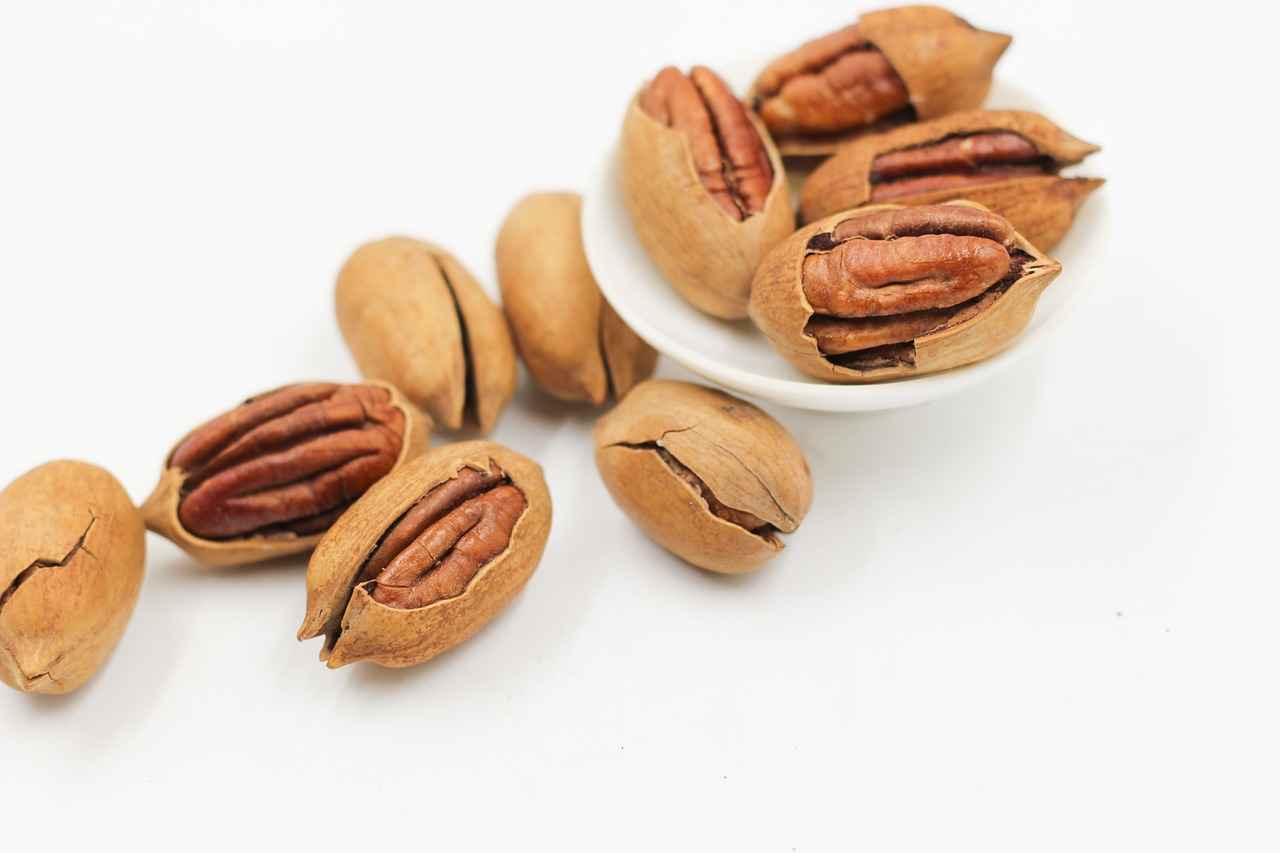
Can Organic Chia Seeds Help with Weight Management?
When it comes to managing weight, dietary choices play a crucial role. Among the myriad of options available, organic chia seeds stand out as a powerful ally. Their unique properties not only enhance nutritional intake but also assist in weight management, making them a popular choice for health-conscious individuals.
Organic chia seeds are packed with dietary fiber, which is essential for promoting feelings of fullness and satiety. A single ounce of chia seeds contains approximately 11 grams of fiber, which is about 42% of the recommended daily intake for adults. This high fiber content slows digestion and helps maintain stable blood sugar levels, making it easier to resist unhealthy cravings.
- Water Absorption: Chia seeds can absorb up to 12 times their weight in water. When consumed, they expand in the stomach, creating a gel-like substance that promotes a feeling of fullness.
- Nutrient Density: Rich in protein, healthy fats, and essential nutrients, chia seeds provide a balanced source of energy that can help curb hunger.
- Blood Sugar Regulation: The fiber in chia seeds helps slow down the absorption of sugar into the bloodstream, preventing spikes and crashes that can lead to increased hunger.
Integrating chia seeds into your meals is straightforward and versatile. Here are some practical ideas:
- Add them to smoothies for an extra nutritional boost.
- Mix them into oatmeal or yogurt for a satisfying breakfast.
- Use chia seeds as an egg substitute in baking, which can also enhance the fiber content of your recipes.
- Sprinkle them on salads or soups to add texture and nutrition.
In addition to aiding in weight management, organic chia seeds offer several other health benefits:
- Omega-3 Fatty Acids: These essential fats support heart health and reduce inflammation.
- Antioxidants: Chia seeds are rich in antioxidants, which help combat oxidative stress and promote overall wellness.
- Bone Health: They are a good source of calcium, magnesium, and phosphorus, essential for maintaining strong bones.
Nutritionists and health experts often recommend chia seeds as part of a balanced diet. Their ability to promote satiety can lead to reduced calorie intake throughout the day. Moreover, they are a whole food option that provides essential nutrients without added sugars or unhealthy fats.
In summary, organic chia seeds are a valuable addition to any weight management plan. Their high fiber content, combined with their ability to promote satiety and provide essential nutrients, makes them a smart choice for those looking to maintain a healthy weight. By incorporating chia seeds into your diet, you can enjoy their numerous benefits while supporting your overall health and wellness.
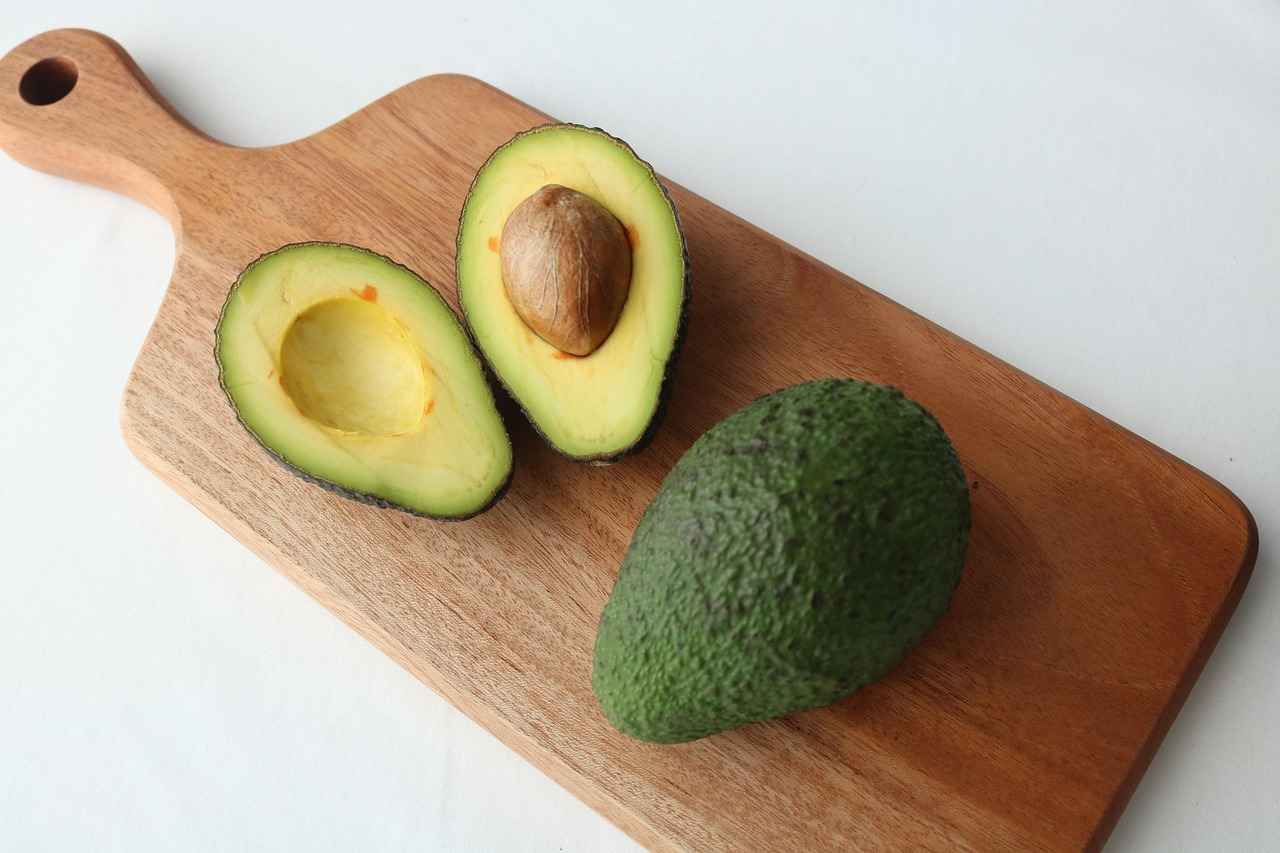
Where to Buy Quality Organic Chia Seeds?
When it comes to purchasing organic chia seeds, finding reliable sources is crucial for ensuring that you receive a high-quality product. Organic chia seeds are not only beneficial for your health but also contribute positively to the environment. Here are some tips on where to buy quality organic chia seeds and what to look for in a reputable source.
One of the first steps in sourcing quality organic chia seeds is to seek out certified organic brands. These brands adhere to strict guidelines set by organic certification bodies, which means their chia seeds are grown without synthetic pesticides or fertilizers. This certification can typically be found on the packaging, ensuring that the seeds you purchase are genuinely organic.
Local health food stores are excellent places to find organic chia seeds. These retailers often prioritize quality and source their products from reputable suppliers. When shopping in-store, take the time to read labels and ask staff about the origins of their organic chia seeds. Knowledgeable staff can provide insights into the brand’s farming practices and quality assurance measures.
In today’s digital age, many consumers prefer the convenience of online shopping. When buying organic chia seeds online, it is essential to choose reputable retailers known for their commitment to quality. Look for online stores that specialize in organic foods and have positive customer reviews. Websites that provide detailed product descriptions and sourcing information can enhance your confidence in their offerings.
Transparency is key when selecting where to buy organic chia seeds. Reputable brands often provide information about their farming practices, sourcing, and quality control measures. Look for brands that openly share their testing results and certifications, as this can indicate a commitment to maintaining high standards.
If you consume chia seeds regularly, consider purchasing in bulk. Many health food stores and online retailers offer bulk buying options, which can be more cost-effective. Additionally, buying in bulk often ensures that you have a consistent supply of fresh, organic chia seeds. However, ensure that the bulk retailer maintains proper storage conditions to preserve the seeds’ freshness and quality.
Before making a purchase, take the time to read customer reviews and ratings. Feedback from other consumers can provide valuable insights into the quality and taste of the chia seeds. Look for reviews that mention freshness, flavor, and overall satisfaction. This can help you make an informed decision about which brand to choose.
Lastly, consider the return policy of the retailer. A flexible return policy can indicate that the company stands behind its products and is confident in their quality. If you receive a product that does not meet your expectations, a good return policy allows you to return or exchange it without hassle.
In summary, finding quality organic chia seeds involves researching certified brands, visiting local health food stores, exploring reputable online retailers, and prioritizing transparency. By following these guidelines, you can ensure that you are purchasing organic chia seeds that are not only beneficial for your health but also contribute to sustainable farming practices.

Are There Any Risks Associated with Consuming Chia Seeds?
When it comes to incorporating chia seeds into your diet, it’s essential to be aware of both their benefits and potential risks. While chia seeds are generally regarded as a nutrient-dense superfood, some individuals may encounter minor digestive issues if they consume them in excessive amounts. Understanding these risks can help you enjoy the many advantages of chia seeds while minimizing any discomfort.
Chia seeds are packed with fiber, which is beneficial for digestive health. However, consuming too many seeds at once can lead to issues such as:
- Bloating: Overconsumption can cause your stomach to feel full and uncomfortable.
- Gas: Increased fiber intake may lead to gas production as your gut adjusts.
- Constipation: Insufficient hydration alongside high fiber intake can result in constipation.
To enjoy chia seeds without experiencing digestive issues, consider the following tips:
- Moderation is Key: Start with a small amount, such as one tablespoon, and gradually increase your intake as your body adjusts.
- Stay Hydrated: Chia seeds absorb water, expanding up to 10-12 times their weight. Ensure you drink plenty of fluids to aid digestion.
- Soak Before Consumption: Soaking chia seeds in water or other liquids can make them easier to digest and reduce the risk of discomfort.
While rare, some individuals may experience allergic reactions to chia seeds. Symptoms can include:
- Rashes or hives
- Swelling of the face, lips, or throat
- Difficulty breathing
If you suspect an allergy, it’s advisable to consult with a healthcare professional before incorporating chia seeds into your diet.
Certain populations may need to exercise caution when consuming chia seeds:
- Individuals with Digestive Disorders: Those with conditions like irritable bowel syndrome (IBS) may find that high-fiber foods exacerbate their symptoms.
- Pregnant or Nursing Women: While chia seeds can be beneficial, it’s best to consult a healthcare provider for personalized dietary advice.
- People on Blood Thinners: Chia seeds can have a blood-thinning effect due to their omega-3 fatty acid content, so consult your doctor if you are on anticoagulant medication.
Despite potential risks, when consumed in moderation, chia seeds offer numerous health benefits:
- Rich in Nutrients: They are an excellent source of omega-3 fatty acids, fiber, protein, and various essential minerals.
- Heart Health: Regular consumption can support cardiovascular health by lowering cholesterol levels.
- Weight Management: Due to their high fiber content, chia seeds can promote feelings of fullness, aiding in weight control.
In summary, while chia seeds are a healthy addition to your diet, being mindful of your intake and hydration can help you avoid any digestive discomfort. By understanding the potential risks and benefits, you can enjoy chia seeds as a nutritious part of your meals.
Frequently Asked Questions
- What are the main benefits of choosing organic chia seeds?
Organic chia seeds are packed with nutrients like omega-3 fatty acids, fiber, and antioxidants. They promote heart health, aid digestion, and boost overall vitality, making them a smart addition to your diet!
- How can I incorporate organic chia seeds into my meals?
There are so many fun ways to enjoy them! You can toss them into your smoothies, sprinkle them on oatmeal, or even mix them into your favorite baked goods. They add a delightful crunch and nutritional punch!
- Are there any side effects to eating chia seeds?
While chia seeds are generally safe, moderation is key. Some people might experience digestive issues if they consume too many. Just remember to stay hydrated, and you’ll be good to go!
- Why is organic farming better for the environment?
Organic farming practices help reduce chemical runoff, promote biodiversity, and improve soil health. By choosing organic chia seeds, you’re supporting a healthier planet for future generations!
- Where can I buy high-quality organic chia seeds?
Look for certified organic brands at health food stores or trusted online retailers. Always prioritize quality and transparency to ensure you’re getting the best product!
